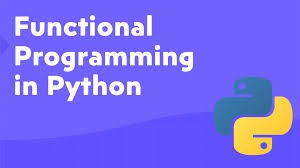In the realm of software development, Functional Programming (FP) stands as a paradigm that offers a unique approach to solving problems using functions as the primary building blocks. Unlike traditional imperative programming, which focuses on statements that change program state, FP emphasizes the evaluation of functions and the avoidance of mutable state. In this blog, we embark on a journey to explore the core concepts of Functional Programming, understanding its principles, advantages, and applications.

What is Functional Programming?
Functional Programming is a programming paradigm that treats computation as the evaluation of mathematical functions and avoids changing-state and mutable data. The key principles of Functional Programming include:
- First-Class Functions: In Functional Programming languages, functions are treated as first-class citizens, meaning they can be assigned to variables, passed as arguments to other functions, and returned as values from other functions. This flexibility enables higher-order functions, which take other functions as parameters or return them as results, facilitating code reuse and abstraction.
- Immutability: In Functional Programming, data is immutable, meaning once it is created, it cannot be changed. Instead of modifying existing data, functions produce new data structures through transformations and operations. Immutability reduces the risk of unintended side effects, enhances code clarity, and facilitates parallel and concurrent programming.
- Pure Functions: Pure functions are functions that have no side effects and always return the same output for the same input, regardless of the context or state of the program. Pure functions rely solely on their input parameters to produce output, making them predictable, testable, and easy to reason about. By minimizing side effects, pure functions enhance code maintainability, modularity, and concurrency.
- Recursion: Recursion is a fundamental technique in Functional Programming, where functions call themselves to solve problems iteratively. Recursion allows for elegant and concise solutions to problems that involve repetitive structures or patterns, such as traversing trees, processing lists, or solving mathematical problems.
Advantages of Functional Programming
Functional Programming offers several advantages over imperative programming paradigms, including:
- Conciseness and Expressiveness: Functional Programming encourages the use of higher-order functions, function composition, and declarative syntax, leading to concise and expressive code that is easier to understand and maintain.
- Modularity and Reusability: By promoting the use of pure functions and immutable data structures, Functional Programming facilitates code modularity and reusability, enabling developers to build composable and scalable software systems.
- Parallelism and Concurrency: The emphasis on immutability and pure functions makes it easier to reason about concurrency and parallelism in Functional Programming. Pure functions are inherently thread-safe and can be safely executed in parallel without the risk of race conditions or side effects.
- Testability: Pure functions, with their deterministic behavior and lack of side effects, are inherently testable. Functional Programming encourages unit testing and provides a clear separation between pure and impure code, making it easier to write comprehensive test suites.
Applications of Functional Programming
Functional Programming is widely used in various domains, including:
- Data Processing: Functional Programming is well-suited for data processing tasks, such as filtering, mapping, reducing, and transforming collections of data. Libraries like Apache Spark leverage functional programming concepts to perform distributed data processing at scale.
- Web Development: Functional Programming languages like JavaScript, with its support for higher-order functions and immutable data structures, are commonly used in web development for building interactive user interfaces and managing complex application logic.
- Concurrency and Parallelism: Functional Programming languages like Erlang and Haskell excel in handling concurrent and parallel programming tasks, such as building scalable and fault-tolerant distributed systems.
- Machine Learning and Data Science: Functional Programming techniques, such as function composition and lazy evaluation, are valuable in the domain of machine learning and data science for building reusable pipelines, composing complex transformations, and handling large-scale data processing tasks.
In conclusion, Functional Programming offers a powerful paradigm for building robust, scalable, and maintainable software systems. By embracing principles such as first-class functions, immutability, pure functions, and recursion, developers can write code that is concise, expressive, and resilient to the complexities of modern software development. As the demand for scalable and distributed systems continues to grow, Functional Programming remains a valuable tool in the arsenal of every software engineer, enabling them to tackle the challenges of tomorrow’s technology landscape.